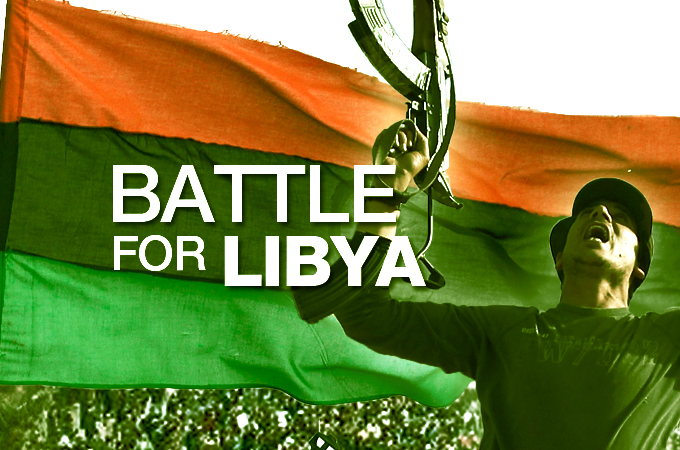Libyan rebels ‘to appoint defence chief’
Transitional National Council says it is set to fill a crucial post as the anti-Gaddafi group organises itself.

 |
| The rebel chain of command has so far been murky, as several figures have vied for prominence [GETTY] |
Libyan opposition forces are set to announce their first minister of defence this week, in an apparent sign of growing organisation and increased civilian control over fighters battling their country’s longtime leader, Muammar Gaddafi.
The Transitional National Council (TNC), based in Benghazi, could appoint the new defence minister as early as on Saturday, Abdelhafiz Ghoga, the council’s spokesman, has told Al Jazeera.
The new appointee will be a civilian, not a member of the military, though he will probably have previous military experience, Ghoga said during an interview on Wednesday.
It is possible that he will have held a position in Gaddafi’s government, he said.
 |
The candidate for the position will be presented to the TNC by the cabinet, or “crisis team”, led by Mahmoud Jibril. The full 31-member council will then vote on approval.
The new defence minister will replace Omar al-Hariri, a former political prisoner who has served as the TNC’s minister of military affairs. Ghoga said the TNC is not yet aware of who the nominee might be.
“So the minister of defence will be in charge of all communications, all liaisons between the revolutionaries and the generals, NATO and the council,” Ghoga said. “Any military aspect, he’ll be in charge of it.”
Until now, Hariri, who helped Gaddafi lead his 1969 coup but later led a plot to overthrow him, has presented near-daily military briefings to the TNC, Ghoga said.
The briefings include descriptions of casualty numbers, ammunition and other supply needs, and movements along the front lines, including Ajdabiya, Misurata and the western mountains, he said.
The new defence minister will take over those briefings.
For months, the rebel chain of command has remained murky, as figures allied with Hariri and other prominent military figures have vied for prominence.
At various times, it has appeared that Hariri, defected interior minister Abdelfattah Younes, and exiled military commander Khalifa Heftir were each in command of the opposition’s military affairs.
Public assertions
In recent weeks, the Council has sought to squelch such confusion. Ghoga has made repeated public assertions that Heftir is a battlefield commander – the leader of a brigade, and nothing more – while Younes is the overall military commander.
Hariri – and, soon, the new minister of defence – rank above both Heftir and Younes, Ghoga said on Wednesday.
Mustafa Abdeljalil, chairman of the TNC and a former justice minister, holds ultimate power as commander in chief, he said.
 |
But even as Ghoga emphasised the TNC’s desire to follow a more Western style of government, with control over the military firmly in civilian hands, he acknowledged that the political leaders in Benghazi have little practical control over the ad-hoc rebel forces on the front lines.
Though the front line in the east has stabilised in the desert west of Ajdabiya in recent days, it swung wildly back and forth for weeks during March and early April. Now, rebels say, they are under orders not to advance from Ajdabiya, perhaps in part to allow space for NATO to conduct air raids against Gaddafi’s forces.
When asked whether a major operation, such as advance from Ajdabiya, would have to receive the TNC’s approval, Ghoga seemed to shrug off the idea. Such day-to-day decisions, he said, are the responsibility of the military council led by Younes.
“We have no problem with it, we would rather they just go forward,” he said, smiling. “We don’t breath down the people’s necks that we appoint, we appoint them to do a job, we expect them to do their job.”
Though Younes and the military council will have to report and answer to the new minister of defence, the TNC does not seem yet to have a strong desire to control them.
“We in the transitional council are not army people, we are civilians, we’re political people, we have nothing to do with the army,” Ghoga said.
Though the TNC would be willing to consider certain former regime officials, it will not accept anyone who had a role in confronting the revolution, Ghoga said, and “anyone who before this revolution had Libyan blood on their hands, we won’t work with them”.